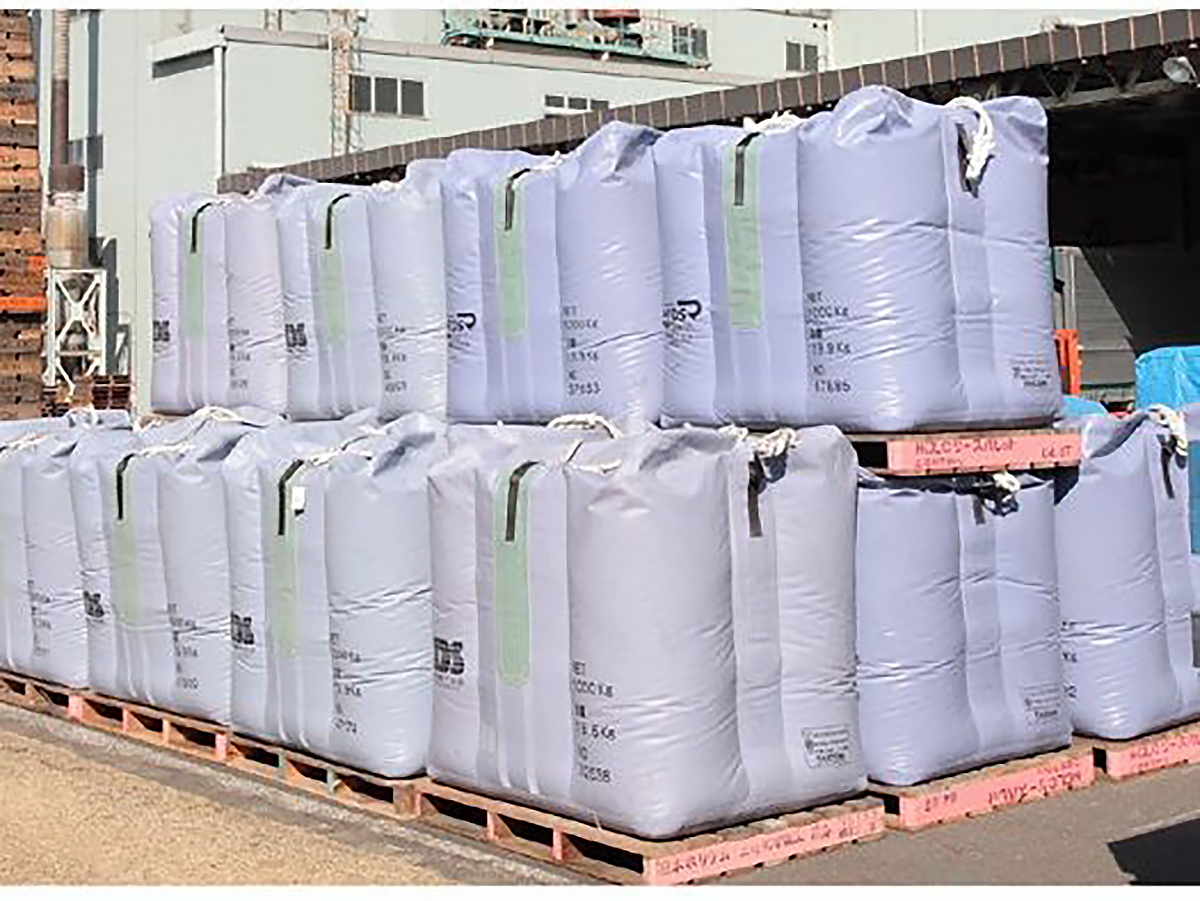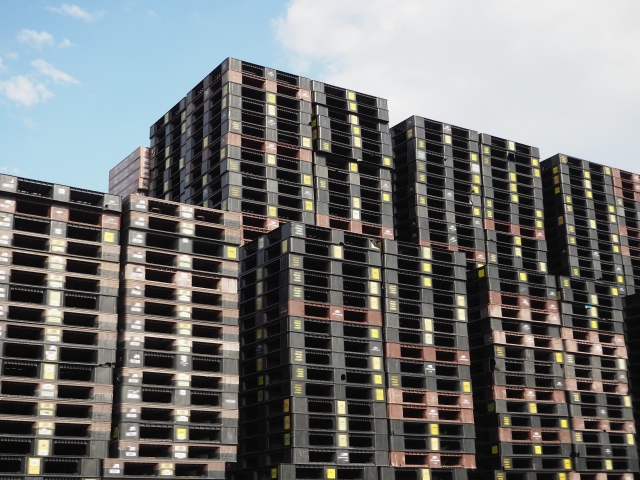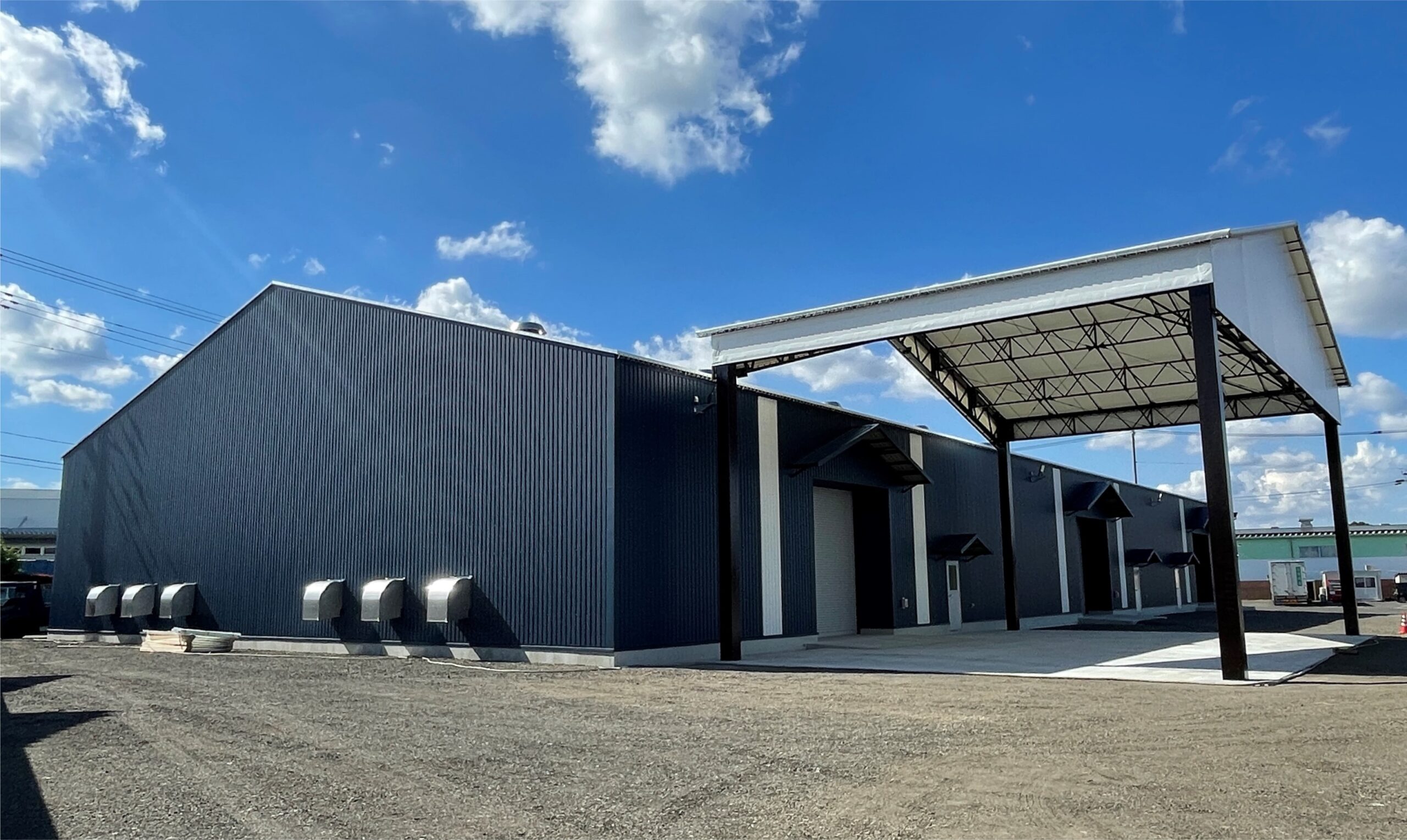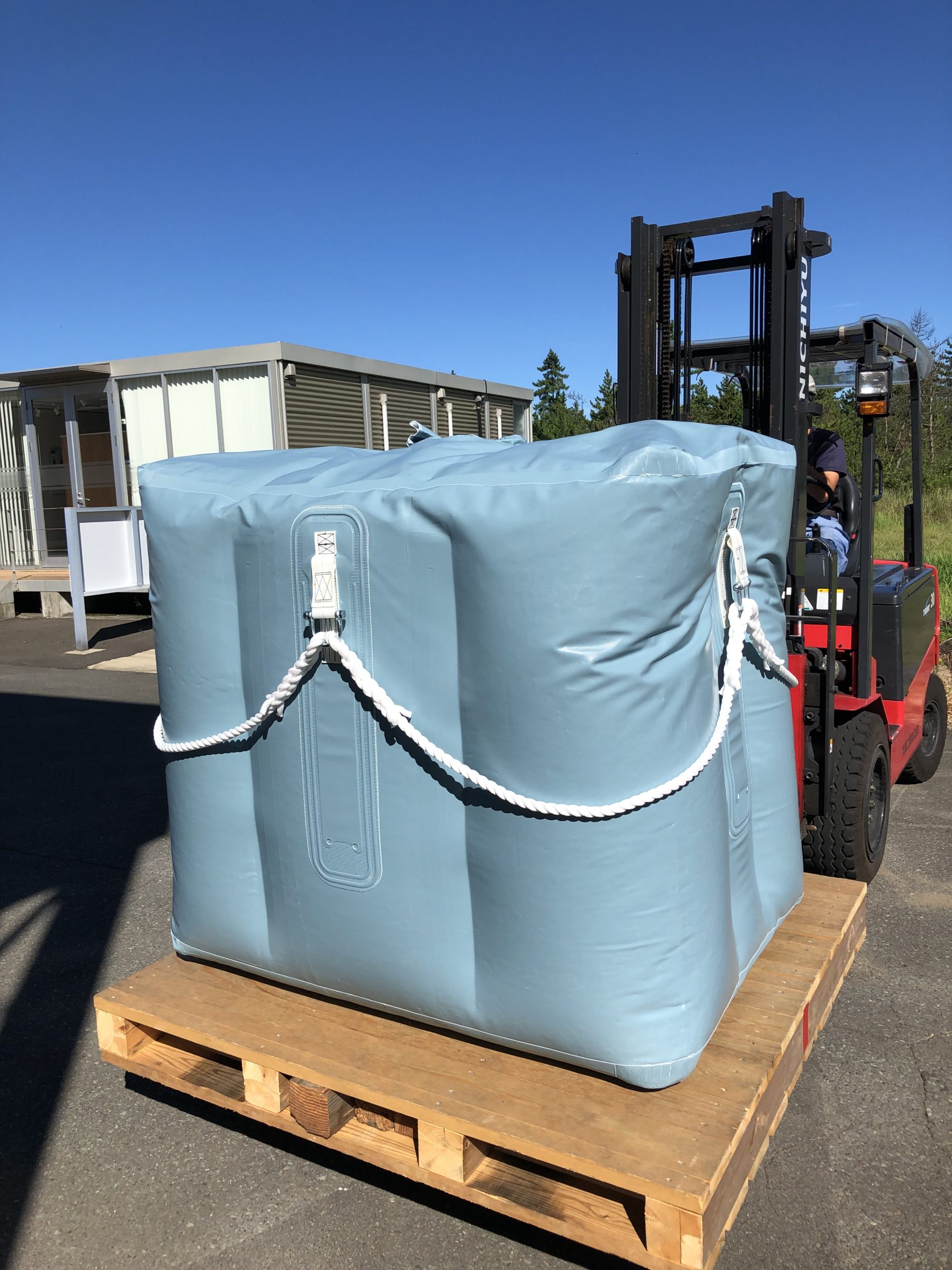

Taiyo Kogyo Column
What we can do now to address logistics issues 5-10 years from now The Future of Running Flexible Container Bags and Pallets
2024.03.05

The logistics industry has undergone a transformation in recent years. In a few years, the products we produce may not be able to be transported as well as they are today.
Issues such as the collection of used running flexible container bags and pallets, aging crews and human resource shortages are piling up. In aiming for environmental friendliness and operational efficiency, the industry as a whole will need to change, looking five to ten years into the future. As an example of the logistics industry’s efforts in this period of change, we interviewed Mr. Miyamura of Lombic Corporation, which provides total support for logistics, including the manufacture and sale of resins, packaging, logistics processing, transportation, and outsourced packaging material management.
Running flexible container bags that can be used repeatedly to meet needs 5 to 10 years into the future
Q. How long has Lombic been using Taiyo Kogyo's running flexible container bags?
A. We have been using these bags for about 30 to 40 years now, including the period of in-house management at our customers. All of our customers use Taiyo Kogyo’s running flexible container bags for packing resin (pellets) at all of their six plants in Japan. As for the packing ratio, it is about half of the total. The other half is made up of paper bags, one-way flexible container bags, and inner bulk.
Q. Why do you continue to use running flexible container bags?
A. We are in the business of “managing packaging materials. If we take the “management” approach, the ultimate goal is “no need for management,” right? If this is the case, we can ship in disposable one-way flexible container bags, but this poses environmental problems due to disposal after use and unstable packing during storage. With running flexible container bags, they can be used repeatedly by cleaning and maintenance. In addition, they offer excellent stability in handling and storage during warehouse loading and unloading. I guess the reason why we continue to use running flexible container bags is that they can solve issues that cannot be solved with other packing formats. It is true that some customers and logistics companies say that they do not want us to use one-way flexible container bags because they are not stable.
Taiyo Kogyo is the leader in running flexible container bags. They support us with knowledge and information backed by experience.
![]()
Q. Why do you continue to use Taiyo Kogyo's running flexible container bags from among many manufacturers?
A. One reason may be that we are the pioneer in the development of the current running flexible container bag, which is designed for cleaning and maintenance. Other manufacturers can make similar products by imitating already established shapes, but it is hard to deny the feeling that they are second best. But Taiyo Kogyo, the leader in this field, has know-how that others cannot imitate, so we can be assured of its quality.
Secondly, Taiyo Kogyo handles the entire process of running flexible container bags, from manufacturing to systems for managing receipt and delivery, collection networks, and maintenance. Management” is essential for running flexible container bags that are used repeatedly, but Taiyo Kogyo, which has accumulated knowledge and information on running flexible container bags backed up by experience, is able to look at the whole process from the same perspective as us and provide backup if any problems arise. That is also very reassuring.
Aiming to reduce environmental impact by reusing discarded pallets and flexible container bags
Q. I heard that Lombic is working to reduce industrial waste in order to reduce its environmental impact. Please tell us about these activities.
A. This is a bit off topic from flexible container bags, but we are working on recycling discarded pallets into pallets by crushing them. We reuse and use the pallets we have used ourselves. In other words, we know where they come from, so the quality is stable and we are able to achieve efficient recycling.
On the other hand, it is difficult to reuse flexible container bags. Unlike pallets, flexible container bags are made up of a mixture of various components, and we recognize that the optimal solution has not been found at this point. We are currently only thermally recycling waste flexible container bags. We are still searching for other recycling methods. It is difficult for us to solve all the issues on our own, so we hope that Taiyo Kogyo will cooperate with us.
"Palletized Delivery" to Reduce Crew Workload. Preparing for a crisis 5 to 10 years down the road by building a new pallet collection system.

Q. What are your thoughts on the future of the logistics industry, and what do you think is important for Lombic?
A. We believe that what has been taken for granted will no longer be taken for granted. Until now, it was possible to get by by spending money. We believe that the number of situations that cannot be transported even if costs are allocated will increase in the future. With the wage level of crew members, the aging of the workforce, and low profit margins for logistics companies, combined with the 2024 problem in the logistics industry, I fear that there will be even fewer people to fill these positions.
In order to improve these issues, the government is working on “white logistics” as a national policy, and from the standpoint of managing packaging materials, we would like to promote palletized delivery and reduce the burden on our crews. However, the running flexible container bags and pallets we manage are distributed nationwide in units of several hundred thousand each, and if we promote palletized delivery, we will have to properly manage them regardless of region or quantity. We are not able to collect the pallets even though we have shipped them with pallets.
Therefore, I think it is necessary for the entire logistics industry to join hands and take measures such as sharing pallet collection depots, sharing transportation companies themselves, sharing collection points, and expanding the scope of collection. However, we cannot come up with ideas unless we look 5 to 10 years into the future. While immediate issues are important, I believe it is important to backcast with an eye to the next few years.
Then the question now becomes, “Who is going to wave the flag?” The question then becomes, “Who is going to wave the flag? Although each company is struggling with the collection of pallets, I think the honest truth is that they are getting the job done for now. The hurdle to spending the money to build a new system is not low, so we would like to work with Taiyo Kogyo first to address the issues at hand, and hope to lay the groundwork for future participation by other companies.
Inquiries about Container Bags
Logistics Business Headquarters
〒154-0001
2-33-16 Ikejiri, Setagaya-ku, Tokyo
〒532-0012
4-8-4, Kigawahigashi, Yodogawa-ku, Osaka City
Contact us by phone
Tokyo: 03-3714-3133
Osaka: 06-6306-3084
Logistics Businessへの
Contact us
Related Articles
- TOP>
- Taiyo Kogyo Column>
- What we can do now to address logistics issues 5-10 years from now The Future of Running Flexible Container Bags and Pallets








